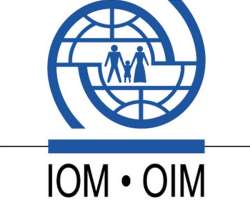IOM Tanzania Organizes Workshop on Return Management

GENEVA, Switzerland, February 28, 2014/African Press Organization (APO)/ -- IOM Tanzania, in close collaboration with the Tanzanian Regional Immigration Training Academy and IOM African Capacity Building Centre (ACBC), is this week organizing a six-day workshop on “Return Management: Lessons Learned from Mtabila Camp Closure, Operation Kimbunga and the Way Forward in Western Tanzania”.
The workshop, which targets senior immigration officials from Burundi and Tanzania, is taking place at the ACBC in Moshi and will run through 4th March 2014.
The programme focuses on international norms and principles of protection and best practices in managing voluntary returns, with specific reference to the closure of the Mtabila refugee camp in Tanzania and “Operation Kimbunga” in North-Western Tanzania.
Over the past four months, some 50,000 migrants have been expelled from Tanzania, resulting in a migration crisis for its neighbours, including Burundi.
The expected outcome of the meeting will be a consolidated work plan for the rollout of a new project based on the lessons learned.
The event will also include a two-day working meeting on cross-border cooperation between the Burundian and the Tanzanian delegations.
The workshop is one of the key activities of a new IOM project: “Migration Crisis Support to Address Migrant Expulsions in Western Tanzania,” funded by the UK Department for International Development (DFID).
The project will help the Government of Tanzania in pursuing a comprehensive and protection-sensitive migration management approach that aims to reduce the number of stranded and vulnerable irregular migrants along Tanzania's border with Burundi, Rwanda and Uganda.
Its main activities consist of registering migrants with a view to support their voluntary return or the regularization of their immigration status in Tanzania, and building the capacity of border agencies to manage migration in a way that protects national borders and respects migrants' human rights.
